#I found someone!!!
Text
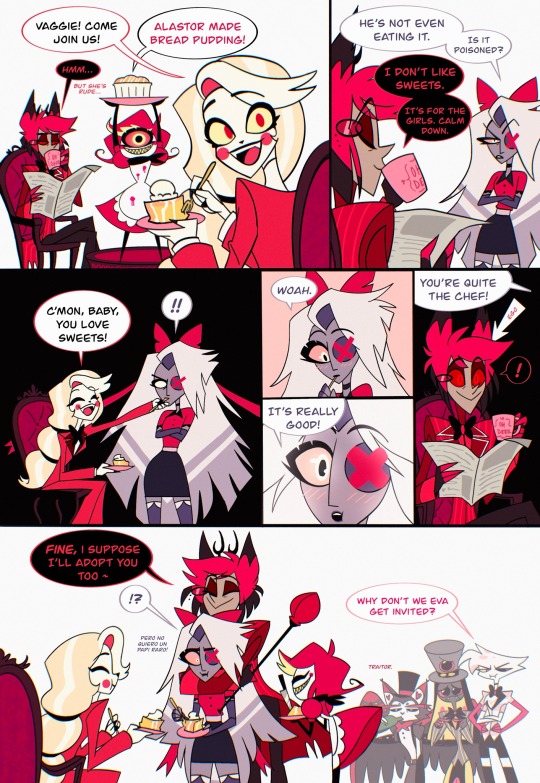
Three darling daughters #girldad
#I do hc that alastor immediately changes his tune when someone compliments him#found family trope ftw#hazbin hotel#hazbin hotel fanart#charlie morningstar#Vaggie#chaggie#niffty#alastor#angel dust#husk#my doods#liked by creator#she reposted it!
28K notes
·
View notes
Text

so this one post right, which OW...
but also i watched X2 yesterday, this hurts even more with context but also feeds into deadclaws so !??!?
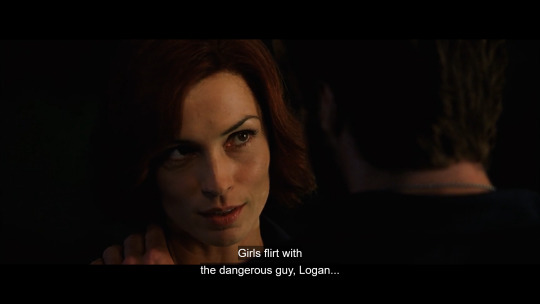
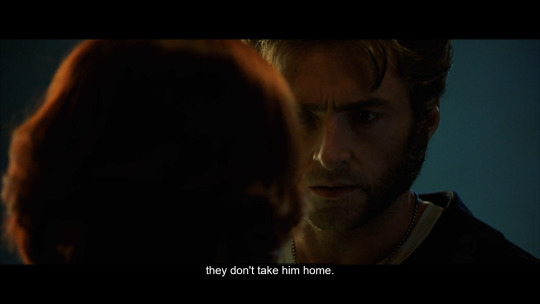
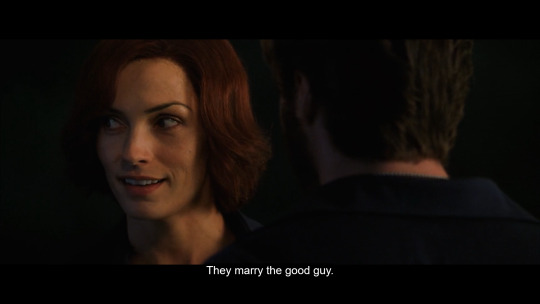
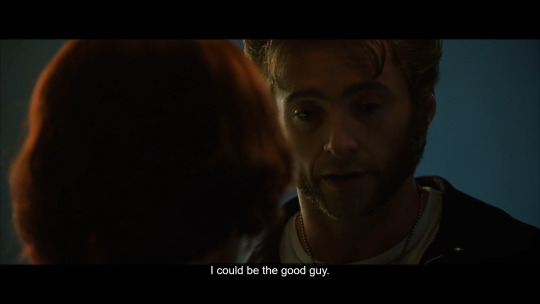

tldr OUGH HE STICKS AROUND...

(edit by @wadewilsonhowlett heart emoji <3)
#deadpool and wolverine#deadpool 3#poolverine#deadclaws#deadpool#wolverine#wade wilson#logan howlett#ryan reynolds#hugh jackman#marvel#xmen#idk#idk if someone posted the first one on tumblr first or as well but i haven't found it so im linking the tweet for now#bear.txt
9K notes
·
View notes
Text
nikolai

nikolai
#have you seen him? now you have#i edited the original post bc someone added a pic of one of the founding fathers in the comments so i was officially done with it.#edit: decided to add some text. to spice it up#originally i wanted to add a pic of skk. given the topic of the original post. but all of my top posts are skk anyway yknow?
31K notes
·
View notes
Text
Forbidden orange juice
#Narcissus is an overlooked tragedy i think#in that its not usually considered one#but narcissus was born beautiful and wanted by everyone#and he spurned all advances#generally without particular cruelty--mostly it seems he ignored or recoiled from those chasing him. and for that he was cursed#to love what would not love him back#to be doomed as soon as he knew himself#in a mythos with ravaging heroes and grotesque monsters narcissus is punished for being beautiful and solitary#and the moment he catches sight of his reflection in still water he is lost--gazing at himself#that which would not love him back.#wasting away until nothing but a gold flower remained#and that's what this is about#finding a stranger in your reflection#the self that does not love you#a curse for someone who was solitary#narcissus i hope the water was fathomless#i hope you found something worthwhile in yourself.
3K notes
·
View notes
Text

x
#jerboa#jerboas#none of these pictures are kangaroo rats i swear#most of them are from inaturalist sightings in asia. i would be very amused if someone found a kangaroo rat in mongolia
29K notes
·
View notes
Text

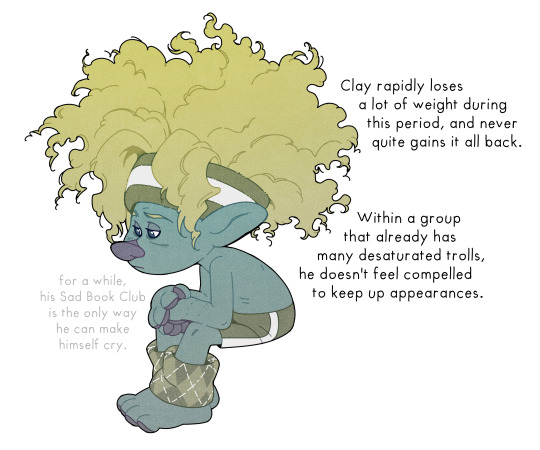
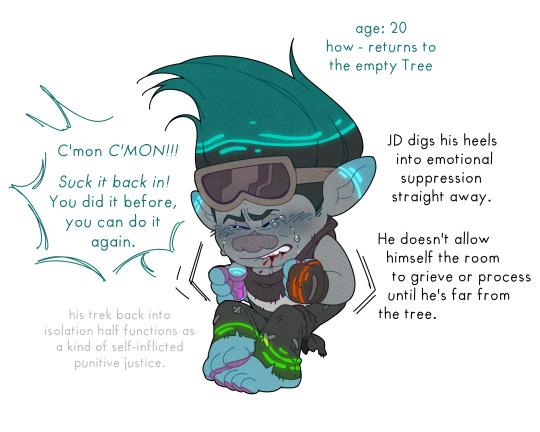
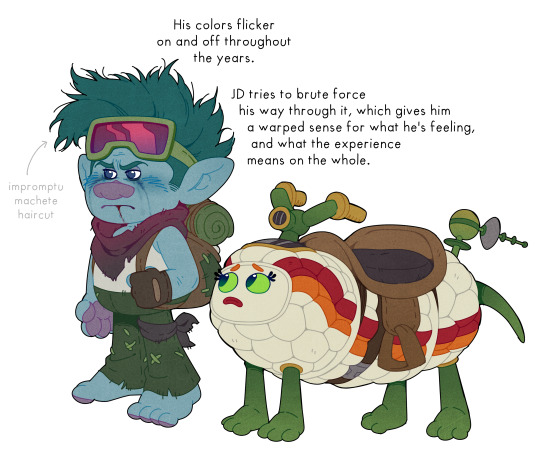




re : how each brother reacts learning that they can't go back
you'll have to pry the "all the Brozone Bros knew what happened at the tree" headcanon outta my cold, dead dead dead hands.
#sandflakedrew#trolls clay#trolls john dory#trolls floyd#trolls bruce#on today's docket : brozone angst#added in order of who i think found out first to last#listen#listen listen listen#they Knew!!!#JD for obvious reasons#Clay from Viva#Bruce isn't taken aback hearing Viva's story either. He's heard before#the combo of Floyd's 'never thought i'd see any of my brothers ever again' & 'is it really you?' hits a similar note for me#They! Knew!#clears throat. anyways#me to me : okay but wouldn't it be a little bit /more/ fucked up if JD didn't /let/ himself be fully gray? wouldn't that be worse?#the idea of someone forcefully sucking that shit back in?#terrible.#awful.#perfect for JD#perfect perfect perfect one might even say#same kinda deal with bruce.#what if you heard the news and felt compelled to try and live for more people than yourself. in order for your current peace to be fair#what then#i have more thoughts but this is enough tags as is
2K notes
·
View notes
Text
Horsegirl bdubs getting on his horse (real!!)
#bdubs#bdoubleo100#hermitcraft#secret life#my art#lat#animation#procreate dreams#teehee#this is based on a tweet where someone compared bdubs to barbie getting on her hirse in 3 musketeers#and i found it funny#so this happend#good practice for dreams so lets goo
7K notes
·
View notes
Text
also in regards to that last article about varied ways of thinking about psychosis/altered states that don't just align with medical model or carceral psychiatry---I always love sharing about Bethel House and their practices of peer support for schizophrenia that are founded on something called tojisha kenkyu, but I don't see it mentioned as often as things like HVN and Soteria House.

ID: [A colorful digital drawing of a group of people having a meeting inside a house while it snows outside.]
"What really set the stage for tōjisha-kenkyū were two social movements started by those with disabilities. In the 1950s, a new disability movement was burgeoning in Japan, but it wasn’t until the 1970s that those with physical disabilities, such as cerebral palsy, began to advocate for themselves more actively as tōjisha. For those in this movement, their disability is visible. They know where their discomfort comes from, why they are discriminated against, and in what ways they need society to change. Their movement had a clear sense of purpose: make society accommodate the needs of people with disabilities. Around the same time, during the 1970s, a second movement was started by those with mental health issues, such as addiction (particularly alcohol misuse) and schizophrenia. Their disabilities are not always visible. People in this second movement may not have always known they had a disability and, even after they identify their problems, they may remain uncertain about the nature of their disability. Unlike those with physical and visible disabilities, this second group of tōjisha were not always sure how to advocate for themselves as members of society. They didn’t know what they wanted and needed from society. This knowing required new kinds of self-knowledge.
As the story goes, tōjisha-kenkyū emerged in the Japanese fishing town of Urakawa in southern Hokkaido in the early 2000s. It began in the 1980s when locals who had been diagnosed with psychiatric disorders created a peer-support group in a run-down church, which was renamed ‘Bethel House’. The establishment of Bethel House (or just Bethel) was also aided by the maverick psychiatrist Toshiaki Kawamura and an innovative social worker named Ikuyoshi Mukaiyachi. From the start, Bethel embodied the experimental spirit that followed the ‘antipsychiatry’ movement in Japan, which proposed ideas for how psychiatry might be done differently, without relying only on diagnostic manuals and experts. But finding new methods was incredibly difficult and, in the early days of Bethel, both staff and members often struggled with a recurring problem: how is it possible to get beyond traditional psychiatric treatments when someone is still being tormented by their disabling symptoms? Tōjisha-kenkyū was born directly out of a desperate search for answers.
In the early 2000s, one of Bethel’s members with schizophrenia was struggling to understand who he was and why he acted the way he did. This struggle had become urgent after he had set his own home on fire in a fit of anger. In the aftermath, he was overwhelmed and desperate. At his wits’ end about how to help, Mukaiyachi asked him if perhaps he wanted to kenkyū (to ‘study’ or ‘research’) himself so he could understand his problems and find a better way to cope with his illness. Apparently, the term ‘kenkyū’ had an immediate appeal, and others at Bethel began to adopt it, too – especially those with serious mental health problems who were constantly urged to think about (and apologise) for who they were and how they behaved. Instead of being passive ‘patients’ who felt they needed to keep their heads down and be ashamed for acting differently, they could now become active ‘researchers’ of their own ailments. Tōjisha-kenkyū allowed these people to deny labels such as ‘victim’, ‘patient’ or ‘minority’, and to reclaim their agency.
Tōjisha-kenkyū is based on a simple idea. Humans have long shared their troubles so that others can empathise and offer wisdom about how to solve problems. Yet the experience of mental illness is often accompanied by an absence of collective sharing and problem-solving. Mental health issues are treated like shameful secrets that must be hidden, remain unspoken, and dealt with in private. This creates confused and lonely people, who can only be ‘saved’ by the top-down knowledge of expert psychiatrists. Tōjisha-kenkyū simply encourages people to ‘study’ their own problems, and to investigate patterns and solutions in the writing and testimonies of fellow tōjisha.
Self-reflection is at the heart of this practice. Tōjisha-kenkyū incorporates various forms of reflection developed in clinical methods, such as social skills training and cognitive behavioural therapy, but the reflections of a tōjisha don’t begin and end at the individual. Instead, self-reflection is always shared, becoming a form of knowledge that can be communally reflected upon and improved. At Bethel House, members found it liberating that they could define themselves as ‘producers’ of a new form of knowledge, just like the doctors and scientists who diagnosed and studied them in hospital wards. The experiential knowledge of Bethel members now forms the basis of an open and shared public domain of collective knowledge about mental health, one distributed through books, newspaper articles, documentaries and social media.
Tōjisha-kenkyū quickly caught on, making Bethel House a site of pilgrimage for those seeking alternatives to traditional psychiatry. Eventually, a café was opened, public lectures and events were held, and even merchandise (including T-shirts depicting members’ hallucinations) was sold to help support the project. Bethel won further fame when their ‘Hallucination and Delusion Grand Prix’ was aired on national television in Japan. At these events, people in Urakawa are invited to listen and laugh alongside Bethel members who share stories of their hallucinations and delusions. Afterwards, the audience votes to decide who should win first prize for the most hilarious or moving account. One previous winner told a story about a failed journey into the mountains to ride a UFO and ‘save the world’ (it failed because other Bethel members convinced him he needed a licence to ride a UFO, which he didn’t have). Another winner told a story about living in a public restroom at a train station for four days to respect the orders of an auditory hallucination. Tōjisha-kenkyū received further interest, in and outside Japan, when the American anthropologist Karen Nakamura wrote A Disability of the Soul: An Ethnography of Schizophrenia and Mental Illness in Contemporary Japan (2013), a detailed and moving account of life at Bethel House. "
-Japan's Radical Alternative to Psychiatric Diagnosis by Satsuki Ayaya and Junko Kitanaka
#personal#psych abolition#mad liberation#psychosis#altered states#antipsych#antipsychiatry#mad pride#peer support#schizophrenia#i have a pdf of the book somewhere if anyone wants#the book and the documentary also discuss some of the pratical struggles in creating a community like this which i also found helpful as#someone who is very interested in helping open a peer respite.
2K notes
·
View notes
Text

this post sucks so bad massachusetts takes its name from the indigenous massachusett people who were genocided and whose land was stolen and that would be obvious if you would think for a single second and look up the etymology before posting. mocking a native language that was eradicated for centuries and is only now beginning to be revived is not fucking funny it is ignorant and racist and cruel
#ribbits#genocide mention#i am actually quite mad that that has 10k notes. scrolled through the notes and only saw one correction#someone asked ‘why did the founding fathers name it that’ first of all the fucking people who were already living here named it that#hundreds of years before this country was founded. second the first colonist to call it massachusetts was fucking john smith in 1610
6K notes
·
View notes
Text
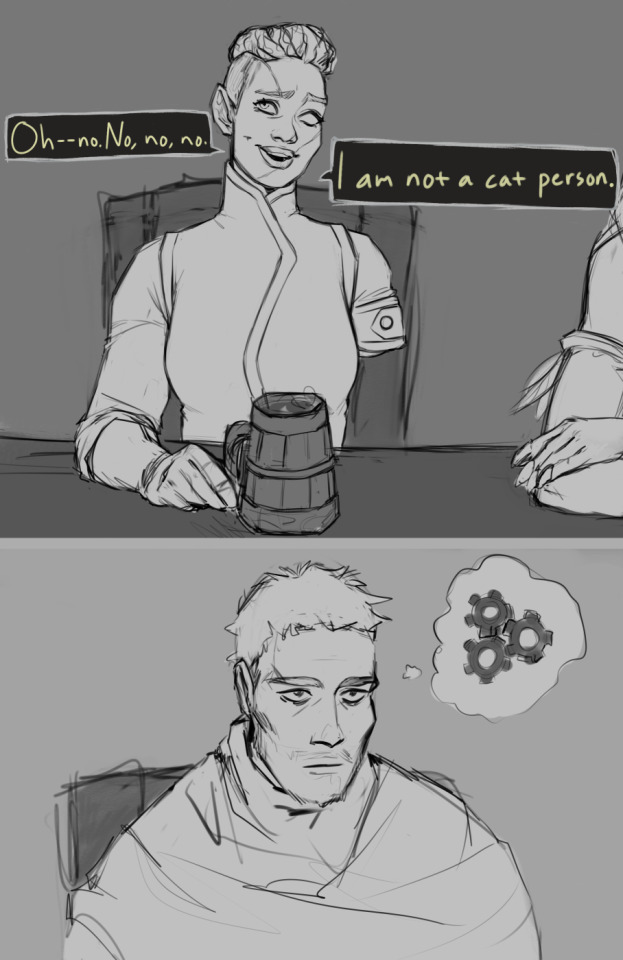
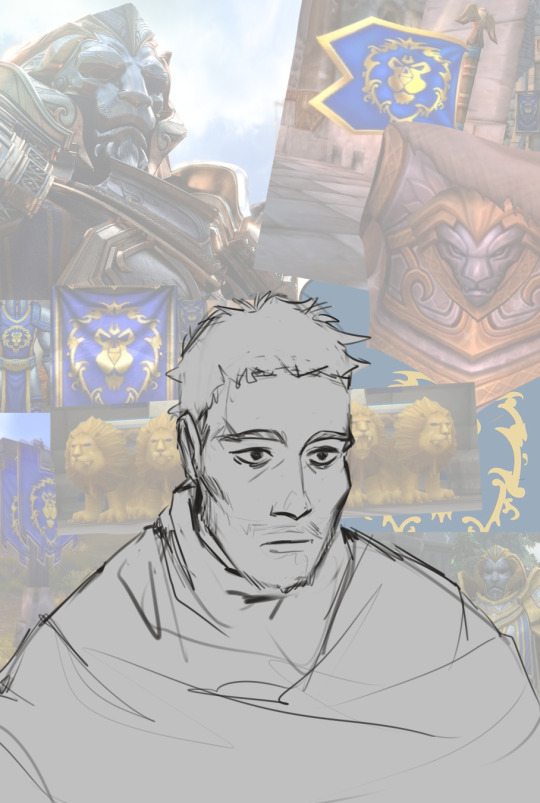
don't take it personally
#my art#world of warcraft#anduin wrynn#faerin lothar#no this is not ship art i just found it funny she said it to a dude who. yknow. has big cat symbol everywhere#rules over a kingdom with big cat symbol. personal/house emblem big cat. kingdom is in an alliance that also has same big cat symbol#hehe#the war within#tww#when i was little i used to start crying if someone said they disliked cats
1K notes
·
View notes
Text

to be fair gojo, renaissance is very hard to spell.
#satosugu#geto suguru#gojo satoru#jjk#jujutsu kaisen#gojo#geto#im sure someone has made this already but i haven’t found it yet#but oh well i made my own version!
1K notes
·
View notes
Text
The way Luz's thank you drawing got rejected by the person it was for when she thought she finally found someone who wouldn't make fun of her for her eccentric behavior, that she is worthless..and then the drawing does get recognized, that it's beautiful and why would it get thrown away. She was finally understood (I am in shambles help-)
#My post#The Owl House#Luz Noceda#I have so many thoughts about this pilot I might make another post down the line#But this. Holy shit it got me good-#She thought she finally found someone who'll understand her considering they seemingly stood up for her#And it absolutely gets her; the way her eyes sparkle because she believes she won't be totally alone anymore#But no. She also makes fun of Luz for trying to show her way of thanks#But then Luz does find someone who actually understands; an outcast like her#(New tag but I just realized Amity said that the drawing was beautiful but in a half-assed tone meanwhile Eda means it genuinely aaaaaaaa-)
3K notes
·
View notes
Text
(tw unreality!)
ayo new theory just dropped and bad news! the implications are cosmically horrifying
in the bulletin from time baby in book of bill, he says bill is a “danger to narrativity”, and that he risks the fourth wall. this kept bothering me. why reference the fourth wall here? why have time baby reference it? yeah the heaven page and shit is a bit meta, but thats just how bill talks, right? Well i was a fool
when you put “seven eyes” into the lost files site, this warning pops up from the oracle question mark? from journal three:

the therapese at the bottom translates to “set coords for dimension: r34lity”.
and putting r34lity into the website gives us this image:

the text below it reads they found a new home. those are “real” fucking images. the henchmaniacs are in our “reality”. the cryptids page might not have been a goof goof bit- they were “real”. (“real” meaning our reality in the book of bill sense of it but still our reality. is that tracking.)
none of the rest of the cast actually references us as a specific audience, or the fandom, or acts like we know them at all. the cast addresses everything they write to a mystery “reader” who needs to be saved from the book’s influence.
meanwhile, in the book of bill:

because bill’s not talking to a mystery “reader” who’s reading this book.
bill fucking sees us.
bill sees reality. REALITY reality. like this earth the one with alex hirsch and gravity falls the show and tiktok and shit. book of bill is a book in our reality for us the reader. (ie. there’s a reference to “they both reached for the gun” if you put gun in the website, which would only make sense if bill was sentient in this “reality” right now.) and someone is trying to get here to hide from him. maybe they’re already here.
#for folks w/ grounding issues- this is a theory about a show and is not real! ‘our reality’ is a narrative device#meant to represent the concept of bill showing up in our reality. but it’s not actually tied to reality!!#this sounds cooler in my head than i think it is#and lowkey this may be obvious to anyone w a brain but idk. something about it yall#idk alex keeps hinting to some Big Thing about book of bill we haven’t found out yet. is this? is???#so much of the meta implications of book of bill are so fascinating to me#book of bill#the book of bill#gravity falls#gravity falls theory#the book of bill theory#book of bill theory#bill cipher#shutupmac#alex hirsch#rats#lost files#this is not a website dot com#someone tell me this makes sense and is interesting to motivate me to make a book of bill video essay#unreality
1K notes
·
View notes
Text
love when men cry about body hair bc "it's hygiene" and yet 15% of cis men leave the bathroom without washing their hands at all and an additional 35% only just wet their hands without using soap. that is nearly half of all men. that means statistically you have probably shaken hands with or been in direct contact with one of these people.
love when men say that women "only want money" when it turns out that even in equal-earning homes, women are actually adding caregiver burdens and housework from previous years, whereas men have been expanding leisure time and hobbies. in equal-earning households, men spend an average of 3.5 hours extra in leisure time per week, which is 182 hours per year - a little over a week of paid vacation time that the other partner does not receive. kinda sounds like he wants her money.
love that men have decided women are frail and weak and annoying when we scream in surprise but it turns out it's actually women who are more reliable in an emergency because men need to be convinced to actually take action and respond to the threat. like, actually, for-real: men experience such a strong sense of pride about their pre-supposed abilities that it gets them and their families killed. they are so used to dismissing women that it literally kills them.
love it. told my father this and he said there's lies, damned lies, and statistics. a year ago i tried to get him to evacuate the house during a flash flood. he ignored me and got injured. he has told me, laughing, that he never washes his hands. he has said in the last week that women are just happier when we're cooking or cleaning.
maybe i'm overly nostalgic. but it didn't used to feel so fucking bleak. it used to feel like at least a little shameful to consider women to be sheep. it just feels like the earth is round and we are still having conversations about it being flat - except these conversations are about the most obvious forms of patriarchy. like, we know about this stuff. we've known since well before the 50's.
recently andrew tate tried to justify cheating on his partner as being the "male prerogative." i don't know what the prerogative for the rest of us would be. just sitting at home, watching the slow erosion of our humanity.
#writeblr#warm up#ps edited so it is more clear where “half” of men is coming from:#15% literally don't even touch water#an ADDITIONAL 35% ''wash'' by just running their hands under water WITHOUT SOAP#15+35 =50%#like that is not washing ur hands. go back and use soap#btw the numbers for women are 4% never washing and 15% ''just water''#which is still gross but like. sooo much better yikes#ps i know we're all gay on this site but watching ppl ''correct'' my math on this has been wild#i have a learning disability im genuinely bad at math so i check EVERY time someone corrects me#but no they're just confidently wrong.....#182 hours is a week babes. 182/24 (number of hours in a day) is ~7.6#that's where i got that number from. also from rent we know there's 168 hours in a week.#ALSO btw if u read this and ur response is ''men are also struggling rn tho'' like babe you missed the point of it tho#this doesn't even make fun of men it's legit just pointing out that bigotry against women isn't founded#in anything men actually CARE about . like they don't actually CARE about ''being clean'' when they make fun of armpit hair#or they would be WASHING THEIR HANDS.#men pretend to be rollin' in cash and Apex Predators and instead they are trained to be lazy and unwilling to act in emergencies#i have never and will never make fun of men for asking for more support on important topics like DV and mental health.#this is so clearly not about men; it's about how common just being plainly misogynistic has become.#like they don't try to hide it anymore.
5K notes
·
View notes
Text
Guys real question why noone talks about this picture

#like why tf did i need to find it myself#on f1 official acc on twt#absolutely randomly#how did everyone miss this when it happened#like#i was screaming for five minutes when i found it#loscar#logan sargeant#oscar piastri#please someone talk to me about this 🙏
2K notes
·
View notes
Text

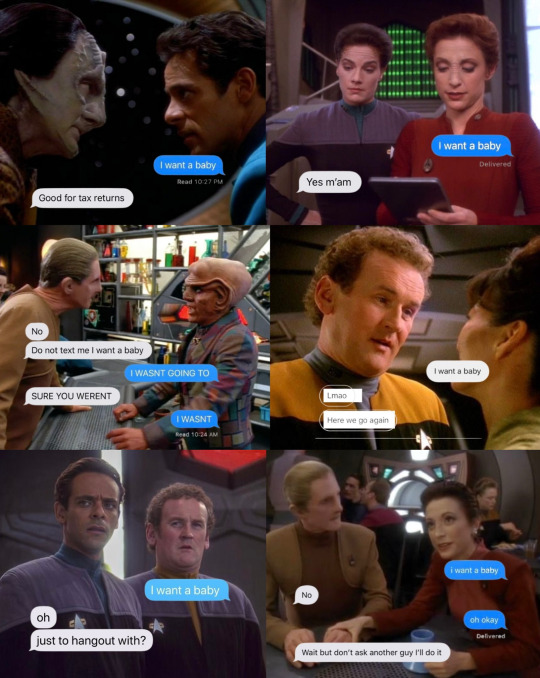
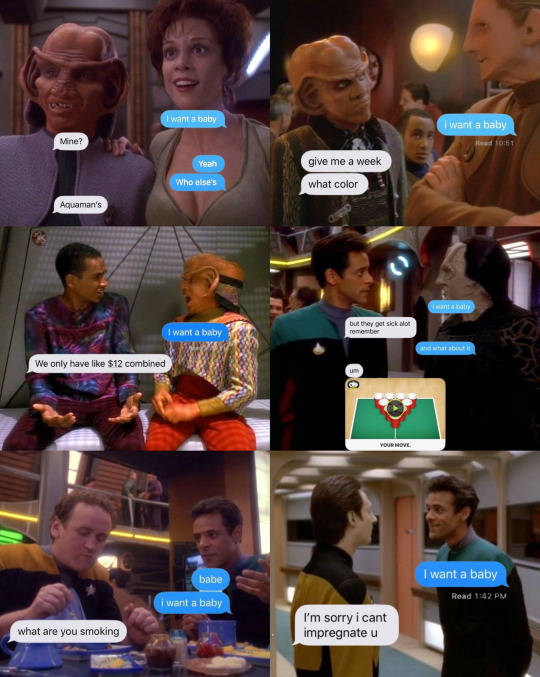
thoughts?
#i’m gonna be honest i made these like 2 years ago#but i didn’t have anyone to show cause no one else would understand 😔#anyways just found them again and thought i should post em here cause someone might see the vision#star trek ds9#star trek#quodo#garashir#kiradax
3K notes
·
View notes